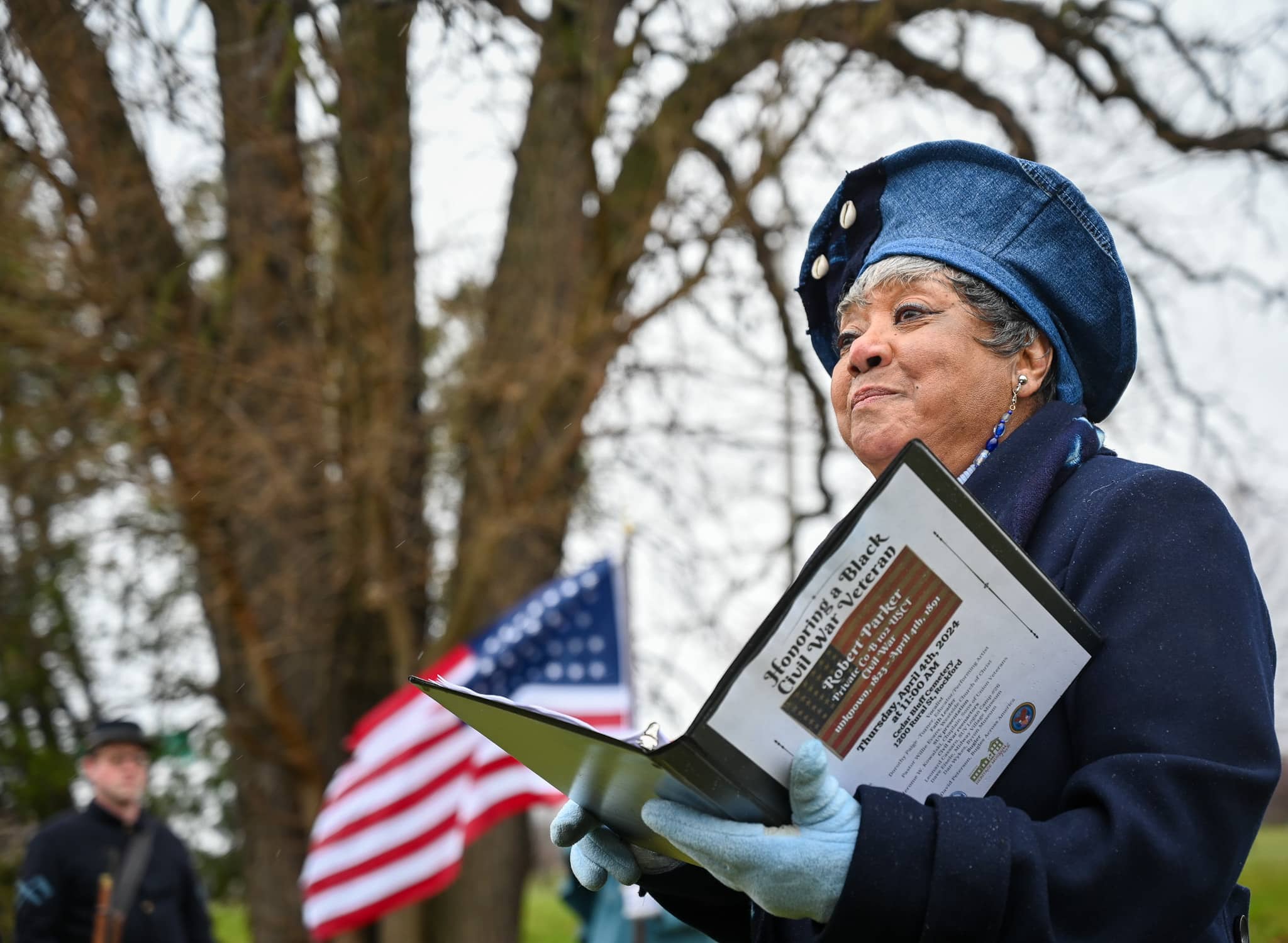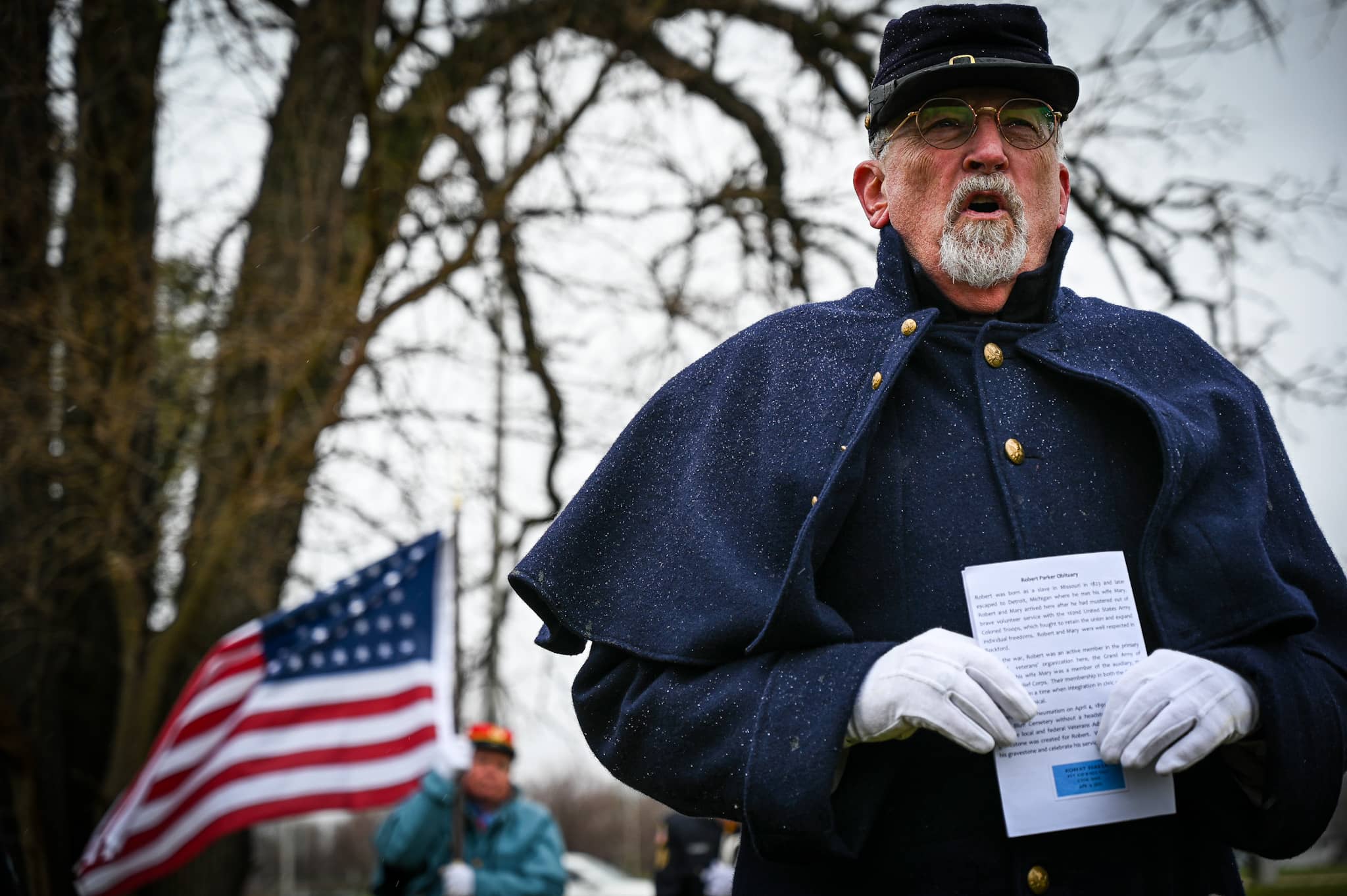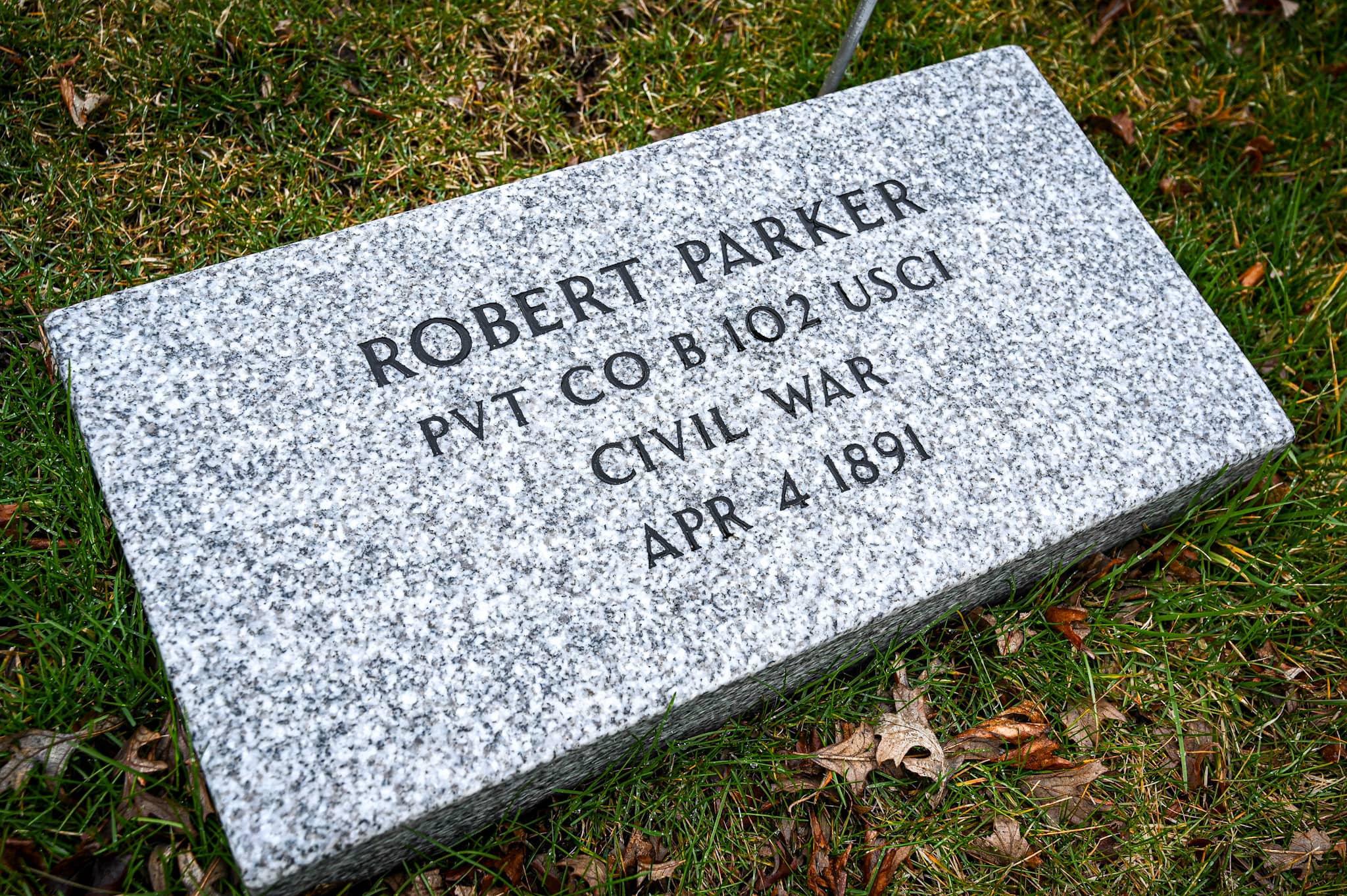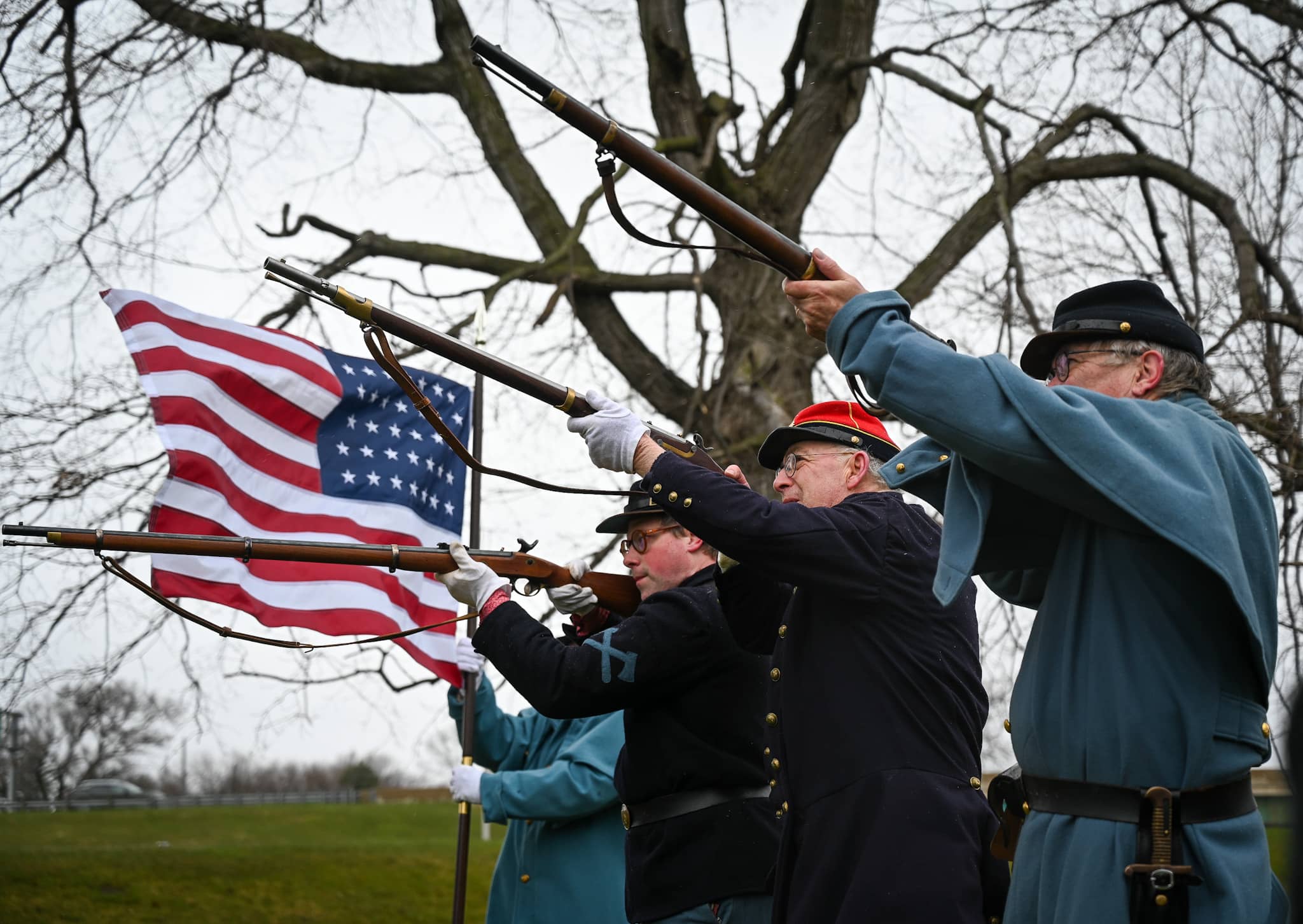
By Kevin Haas
Rock River Current
Get our mobile app
ROCKFORD — A Black soldier who was born enslaved and fought for the Union Army during the Civil War was given a proper gravestone Thursday on the 133rd anniversary of his death.
The Ethnic Heritage Museum spent months working with the state and federal Veterans Administration and Cedar Bluff Cemetery to provide a headstone for Robert Parker, who came to Rockford with his wife, Mary, after service with the 102nd United States Army Colored Troops.
“He was willing to put his life on the line so his people could be free,” said Dave Eisele, a historian and Civil War reenactor with Midway Village Museum.
More history: Sign ceremony to honor John Briggs, Rockford’s first Black hotel owner
A couple dozen people gathered in a mix of rain and snow for the ceremony to honor Parker. Civil War reenactors provided a gun salute, David Peterson of Bugles Across America played “Taps,” and “Amazing Grace” and other songs were sung by Dorothy Paige-Turner, a retired educator and award-winning singer.
“These soldiers, they fought in weather worse than this. They slept out in this weather, and they did it for three to four years,” Eisele said. “That’s so that we could have a country today that’s united, and that’s why we honor this soldier today.”

Parker died April 4, 1891, of rheumatism and was buried at Cedar Bluff Cemetery, 1200 Rural St., without a headstone. There are an estimated 50 other unmarked gravestones here for soldiers like Parker, and there are more that have deteriorated, according to David Ruffin, director and curator of the African American Gallery at Ethnic Heritage Museum. He hopes more can be installed in the future.
“They sacrificed their lives so we could live the life we live,” Ruffin said. “They came to a melting pot and gave up their lives to help us. We should show our gratitude.”
Parker was born in 1823 in Missouri and later escaped to Detroit, where he met Mary. They came to Rockford
Robert Parker was an active member in the Grand Army of the Republic, the primary national veterans organization at the time, and Mary was part of the Women’s Relief Corps. Their membership in the organizations was notable because it was a time when many civic organizations were not integrated, Ruffin said. But he said the Parkers were well respected here. As an example, when Rockford paved East State Street the city provided Mary Parker with accommodations so she could perform.
“The city actually built a platform for her to dance on, so it just shows the respect that the community had for both of them,” he said.

The ceremony was also attended by aldermen Jeff Bailey, Chad Tuneberg and Mark Bonne and state Sen. Steve Stadelman, who read a proclamation honoring Parker.
“During this time of conflict and hatred, it’s really heartwarming to see the community get involved with someone we don’t know and never heard of, but we respect what he did,” Ruffin said.

This article is by Kevin Haas. Email him at khaas@rockrivercurrent.com or follow him on X at @KevinMHaas or Instagram @thekevinhaas and Threads @thekevinhaas

